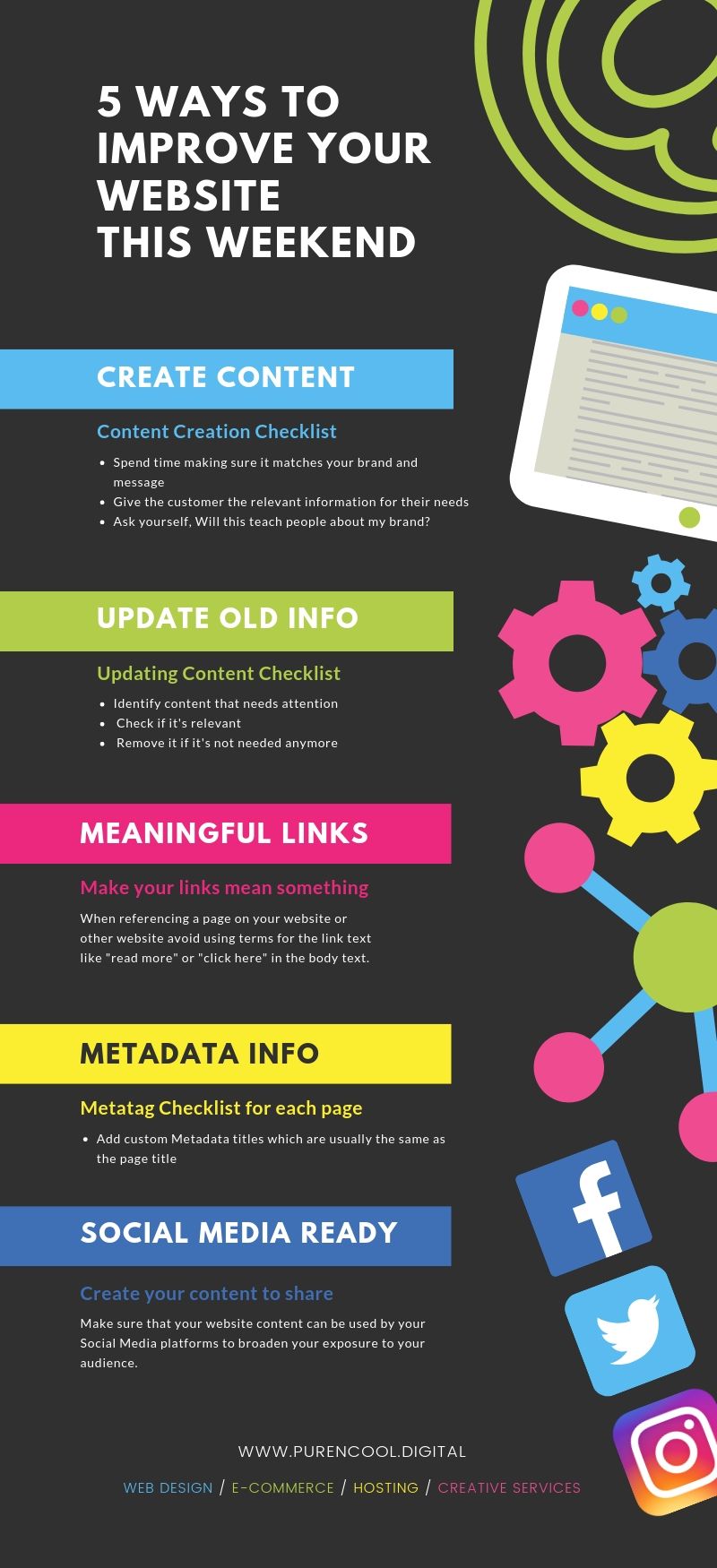
The digital game has changed significantly for SEO in the past year as technology continues to advance. Most business websites only need minor changes to affect there ranking and create a long-term presence online. Keeping up with the latest trends and information on how best to promote your business’ website online has become somewhat of a challenge so we've put together the following video and tips to help just about anyone achieve great SEO.
1. Create content that is applicable to your brand
The search engines of today are trying to categorise billions of pieces of information, your site will fall into one or many of those categories. One way they classify the data is by attaching meaning to your brand or URL, so your content needs to have current relevance and be contextual to your brand. HOT TIP: Have information that discusses your brand/business placed on your website giving the search engines the ability to broaden their understanding and give your brand the authority it needs.
Content Creation Checklist:
- Make plans to develop content
- Spend time making sure it matches your brand and message
- Give the customer the relevant information for their needs
- Ask yourself, Will this teach people about my brand?
- Create content and post on your website regularly
2. Update existing (old) information on your website
As a website ages content that was relevant will need rejuvenating or removing completely. By diligently up keeping the website your brand will stay relevant online and give your user a reason to return and trust you. With minimal effort and abolishing the need to create brand new information from scratch, this is a no-brainer way to improve your SEO.
Updating Content Checklist:
- Identify content that needs attention
- Check if it's relevant
- Remove it if it's not needed anymore
- Redirect old URLs to relevant ones
- Update content and repost
3. Make your links mean something
When referencing a page on your website or other website avoid using terms for the link text like "read more" or "click here" in the body text. Instead, highlight a word in the information that you write that is applicable to your category and create your link from that. For example, instead of: To find ways to improve your ranking "click here", you could write, To find ways to improve your ranking read the "article that explores 5 tips for business". This will help give a reference to the search engine resulting in a clear way to communicate what the subject matter is about.
By reading the information that surrounds the link it will help you determine what to select and what would still be relevant to the reader and helpful to the search engines.
4. Use Metadata information to create website context
Metadata for web pages contain descriptions of the page’s contents, as well as keywords linked to the content. These are usually expressed in the form of metatags. The metadata containing the web page’s description and summary is often displayed in search results by search engines, making its accuracy and details very important since it can determine whether a user decides to visit your site or not. Metadata information created on the page makes the main content more weighty and insightful. It is primarily for the search engines and helps explain what is trying to be stated in a clear and succinct way.
Even though it is not as important as the content itself it is often overlooked which is an SEO opportunity lost because metadata is nothing to be sneered at.
Metatag Checklist for each page:
- Add custom Metadata titles which are usually the same as the page title
- Description Metadata should be a clear acknowledgment about the subject matter on the page
- Keywords Metadata words usually with a comma give the page what type of categories the information could be placed in
5. Make sure your content is Social Media ready
Make sure that your website content can be used by your Social Media platforms to broaden your exposure to your audience. Once you have written a blog post for example, create Facebook, Instagram or Pinterest posts and imagery (Canva is an amazing resource for this) to share on your channels so that others can read it, or send an EDM to your subscriber list.

If you're wanting to get more advice on improving your website ranking or maybe deciding to build a customised website for your business, or you're looking to grow your brands' awareness on social media contact us

